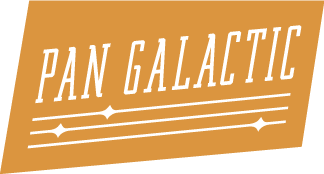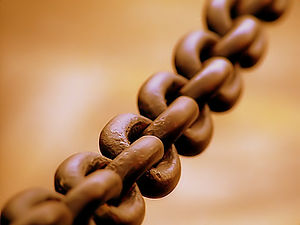Good SEO (Search Engine Optimization) practice is crucial for a business website. Being at the top of Google’s search rankings is much like being at the top of the Yellow Pages listings (or having one of the biggest ads in it.) Customers are increasingly turning to web searches to find what they’re looking for, and having a prominent place in those searches makes your business more visible to them.
Links are important in SEO because search engines like Google use automated algorithms to crawl the web on a daily basis. Links are the pathways they use to discover new sites and new pages. While you can submit a new site directly to Google’s database through their website, Google’s “crawlers” also find new content automatically by way of links from other sites.
The unseen “value” that search engines assign to a site (and that determine its placement in the search rankings) comes from a variety of factors, but one major influence is links to your site from other sites that are already established and have a good reputation. It’s assumed that if well-regarded sites in your field are linking to you, your site is a trustworthy source of information on the subject, and thus your search value increases.
Google and the other search giants keep the exact details of their search valuation a carefully guarded proprietary secret, but years of experimentation and analysis have identified a number of important elements that consistently improve SEO. One of the biggest elements in link building is “anchor text.” Anchor text is simply the colored text you see when surfing a website that indicates that you can click there to go to a different page. When search engines are analyzing a page to determine what search topics it is relevant to, a major factor that they incorporate is the anchor text in links from other pages that go to that site. In other words, the anchor text is regarded by search engines as a description of the content of the site that is linked to.
A variant of anchor text is the text used in descriptions of images. As you’ve likely seen at some point, it’s also possible to click on images to be taken to a new link. Web developers can include a description of the image that is usually seen when you hover over it with your mouse without clicking. That description is also used by search engines to determine the content of the link. Again, it is impossible to say with certainty exactly how valuable these descriptions are due to the secrecy of the search giants, but experimentation by thousands upon thousands of web designers over the years indicates that image descriptions also play a role in shaping your SEO. They are generally thought to carry less weight than text links do, however.
So if anchor text is valued so highly, shouldn’t you want to stuff as much relevant information as you can in text links to your site? Well, wait just a second there. The search engines are constantly on the lookout for techniques to game the system and regularly adjust their algorithms to account for them. Pulling an obvious stunt like that can actually cause your site to plunge in the rankings. Unethical “black hat” SEO marketers will advertise the latest and greatest techniques to game the search engines, and it can be tempting to subscribe to them, especially for a business that is just starting out and has little to no cachet on the web. But keep in mind that search engine valuation is not entirely automated. Google actually employs a small army of “search engine evaluators” through contractors like Lionbridge, Leapforce and Appen Butler-Hill. These are people who manually scrutinize search results and web pages to determine which are most valuable. Unethical shortcuts like keyword stuffing can get your site flagged and turn around to bite you. In the long run, simply doing right by the customer is what will serve you best with the search engines – provide a user-friendly and bug-free page with high-quality content.
Link building can be a powerful tool for building your online presence when done properly. In the long run, the best strategy for establishing positive links and web trust is to simply provide a quality website and do good business. In the short run, getting listed in web directories and engaging in link exchange with other relevant sites can help to boost your presence and visibility. Just be careful who you link to (and who is linking to you), because links have the potential to both hurt and help your business.
Related articles



